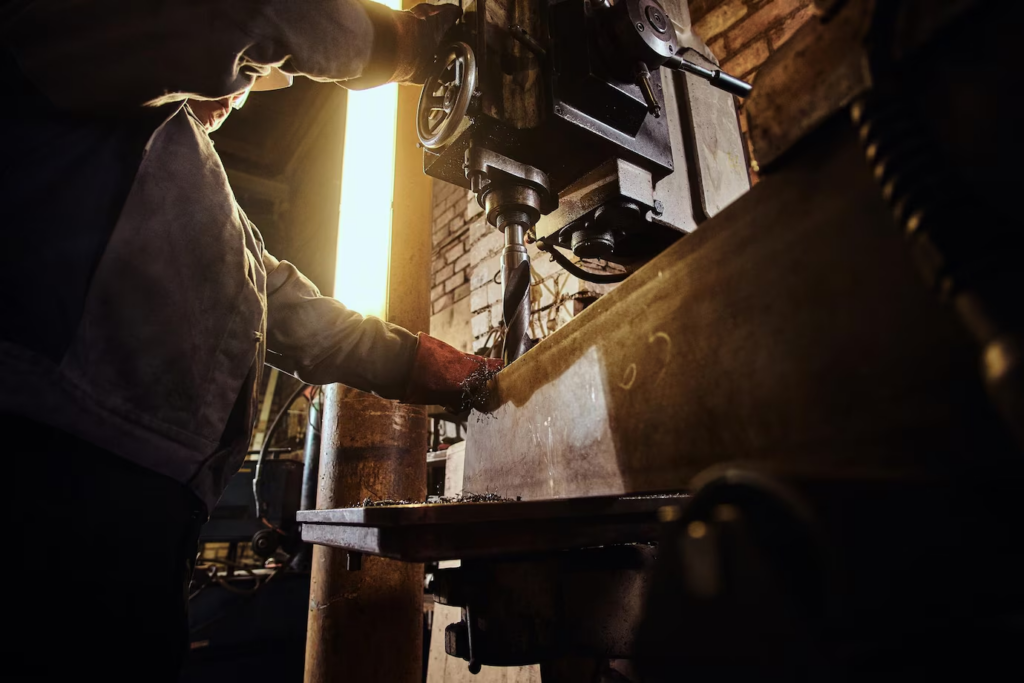Maintaining industrial equipment and military support systems is crucial for ensuring efficiency, safety, and reliability. From factories to military bases, the performance of these systems directly affects operational success. Regular maintenance goes beyond a routine task; it’s a strategic necessity. Without it, even the most advanced equipment can fail, leading to costly downtime, reduced productivity, and potential safety risks. In high-stakes military operations, the consequences of improper maintenance are even more severe, affecting mission success and readiness. Companies like Bendtech Defence provide solutions that streamline the process, ensuring optimal equipment performance.
Consistent care is the foundation of success in both industrial and military sectors. Well-managed systems reduce downtime, extend the lifespan of machinery, and ensure that safety standards are upheld. Neglecting this practice can result in equipment breakdowns, expensive repairs, and, in some cases, catastrophic failures. Regular inspections, part replacements, and system updates are essential to keep both industrial and military equipment operating smoothly, enabling organizations to meet their goals.
Boosting Efficiency Through Regular Maintenance
One of the primary benefits of regular system care is its impact on efficiency. Industrial machinery, whether in manufacturing, construction, or energy production, needs to operate at peak performance to meet production demands. Any disruption due to wear and tear can reduce output and delay essential processes. Scheduled system checks ensure that minor issues are identified and fixed before they escalate into larger, more costly problems.
In military operations, the performance of vehicles, weapons, and communication systems can determine the success of a mission. Routine care ensures these systems are always ready for action. An unexpected equipment failure during a critical mission can jeopardize security and lives. Upkeep guarantees that military systems function reliably, giving personnel the confidence to perform their duties without concern over equipment failure.
Extending Equipment Lifespan with Preventative Care
Preventative strategies are one of the most effective ways to extend the lifespan of both industrial and military equipment. Rather than waiting for problems to occur, this approach involves regular inspections and repairs based on usage and wear patterns. By addressing potential issues before they lead to equipment failure, preventative care can significantly prolong the operational life of machinery. This reduces the need for costly replacements and helps organizations get the most value out of their investments.

In military settings, extending the lifespan of crucial equipment is vital for maintaining readiness. Defense budgets are often limited, and frequent replacement of expensive machinery may not be an option. Preventative measures help military organizations maximize the value of their existing systems, ensuring they are prepared for any operational challenges.
Minimizing Downtime and Preventing Breakdowns
Downtime is a major concern in both industrial and military sectors. In industrial settings, downtime translates to lost productivity and revenue. For example, a machine breakdown in a factory can halt production, resulting in delays and increased costs. Routine upkeep minimizes downtime by ensuring that equipment is in good working condition and that any potential problems are addressed before they lead to disruptions.
In military environments, unexpected breakdowns can have serious consequences. Operations rely on precision, and any delay caused by equipment failure can compromise success. Regular system care ensures that all components are functioning properly, minimizing the risk of breakdowns. This allows the military personnel to focus on their mission without worrying about the reliability of their equipment.
Ensuring Safety Standards
Safety is a top priority in both industrial and military environments. Malfunctioning equipment can cause accidents, injuries, and even fatalities. Machinery that isn’t properly cared for may malfunction, posing significant risks to workers and operators. Routine checks ensure that all safety protocols are followed and that equipment meets required safety standards. By preventing malfunctions and ensuring that safety features are operational, these practices reduce the likelihood of workplace accidents.

For military personnel, equipment safety is paramount, especially when operating in high-risk environments. Equipment failures can endanger lives, whether it’s a malfunctioning vehicle, weapon, or communication system. Regular upkeep ensures that military systems are safe to use, protecting both personnel and mission outcomes.
Adapting to Technological Advancements
As technology continues to advance, both industrial and military systems are becoming more complex. This complexity means that care practices must evolve to keep up with the latest technological developments. Modern equipment often requires specialized procedures, including software updates, recalibrations, and the replacement of the advanced components. Staying on top of these requirements is crucial for ensuring that equipment continues to perform at its best.
In military operations, the rapid adoption of new technologies is essential for maintaining a strategic edge over adversaries. Advanced equipment, such as drones, AI-driven systems, and cutting-edge communication tools, provides enhanced performance and operational capabilities, offering significant advantages in the field. However, these high-tech systems require specialized maintenance and regular updates to function optimally and avoid malfunctions.

